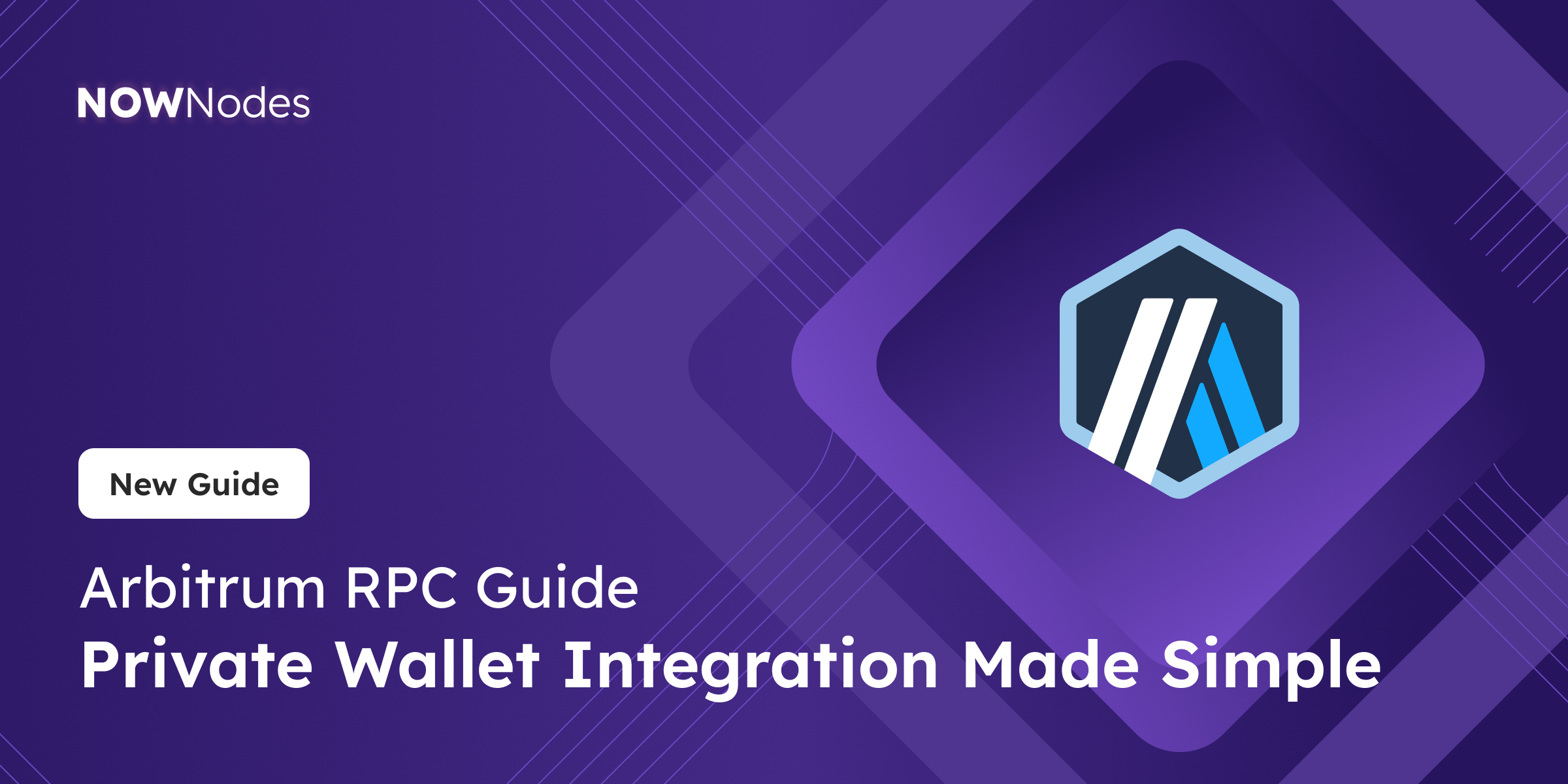Arbitrum has rapidly emerged as one of the most efficient scaling solutions in the Ethereum ecosystem. Its ability to drastically lower transaction fees and boost network throughput makes it the go-to Layer 2 for developers and users alike. But to unlock the full potential of Arbitrum RPC, it’s not enough to simply support the network in your wallet. You need direct, private, and scalable access to its RPC infrastructure.
This article explains why Arbitrum matters today, how to connect your wallet to the Arbitrum blockchain via RPC, and what methods are essential for secure and performant blockchain interactions.
Why Arbitrum Is Leading the Layer 2 Race
Ethereum’s scalability challenges are well known: high gas fees, congested blocks, and slow transaction confirmations during peak demand. Arbitrum solves these problems using optimistic rollup technology, processing the bulk of transaction activity off-chain while relying on Ethereum for final security.
What Makes Arbitrum Stand Out:
- Near-instant transactions with finality backed by Ethereum’s L1 security.
- Full EVM compatibility, meaning existing Ethereum smart contracts deploy seamlessly on Arbitrum.
- Drastically lower gas fees, enabling new types of dApps and microtransactions.
- Rapid ecosystem growth, with leading DeFi protocols, NFT platforms, and DAOs adopting Arbitrum.
- Global developer community, actively building tools and integrations for mainstream adoption.
Arbitrum isn’t just an experimental chain — it’s becoming a critical infrastructure layer for the Ethereum economy. Whether you’re building wallets, DeFi platforms, or payment solutions, integrating Arbitrum provides a faster, cheaper user experience.
The Role of RPC in Wallet Infrastructure
RPC (Remote Procedure Call) is the technical bridge between your wallet’s backend and the blockchain itself. Every on-chain interaction—whether checking an account balance or sending a transaction—uses RPC.
Most wallets connect to public RPC providers. While easy to set up, this approach has critical limitations:
- Data exposure: Public RPC nodes can log requests and track wallet activity.
- Shared capacity: Your requests compete with traffic from thousands of other apps and wallets.
- Rate limits: Free or shared plans may cap your request volumes, hurting performance.
The solution is straightforward: connect your wallet to a dedicated arbitrum rpc endpoint, isolating your traffic and protecting your users’ privacy. Private RPC access also boosts response times and ensures your wallet has uninterrupted network access.
Core Arbitrum RPC Methods for Wallets
Once connected to an Arbitrum RPC node, your wallet will use a set of standardized JSON-RPC methods. Below are the most important ones for wallet functionality:
Network Information
- eth_chainId: Returns the chain ID of the connected network, ensuring your wallet is interacting with Arbitrum and not a different chain.
- net_version: Provides the network version in string form, a basic but effective network check.
Account Management
- eth_getBalance: Retrieves the ETH balance of a wallet address.
- eth_getTransactionCount: Provides the nonce of an address, essential for building valid transactions.
Transaction Lifecycle
- eth_sendRawTransaction: Submits a signed transaction to the blockchain.
- eth_getTransactionReceipt: Retrieves the confirmation status of a transaction after it’s been broadcast.
- eth_getTransactionByHash: Returns detailed transaction data, useful for analytics and wallet history.
Smart Contract Interactions
- eth_call: Executes smart contract functions locally to read data without creating an actual transaction.
- eth_estimateGas: Calculates the expected gas cost of a transaction, helping prevent failed operations.
- eth_gasPrice: Queries the current gas price on the network for dynamic fee calculations.
Blockchain State
- eth_blockNumber: Returns the latest block number on the Arbitrum chain.
- eth_getBlockByNumber: Provides detailed block data, often used for syncing wallet data or transaction history.
Mastering these methods allows you to create a wallet that is both highly responsive and fully autonomous in its blockchain interactions.
Secure RPC Access with NOWNodes
Running your own Arbitrum full node is technically possible but involves significant operational complexity: hardware management, software updates, monitoring, and failover planning.
For most teams, the smarter approach is to use a node-as-a-service provider. Platforms like NOWNodes offer:
- Personal API keys to keep your RPC requests isolated and secure.
- Instant access to a scalable Arbitrum RPC endpoint.
- Zero maintenance — no need to sync, upgrade, or troubleshoot your node.
- Full compatibility with all JSON-RPC methods supported on Arbitrum.
With NOWNodes, your wallet gets fast and reliable access to the Arbitrum blockchain, without the technical overhead of node management.
How to Get Started
- Sign up for a NOWNodes and create your personal API key.
- Configure your wallet or server to connect to the private Arbitrum RPC endpoint using the provided URL.
- Start making RPC calls using your preferred blockchain libraries or raw HTTP requests.
- Monitor and scale your integration as your wallet grows.
Final Takeaways
Arbitrum is reshaping the Ethereum landscape, offering developers a powerful, scalable, and affordable Layer 2 environment. But to fully leverage it in production wallets and apps, you need private, reliable infrastructure.



